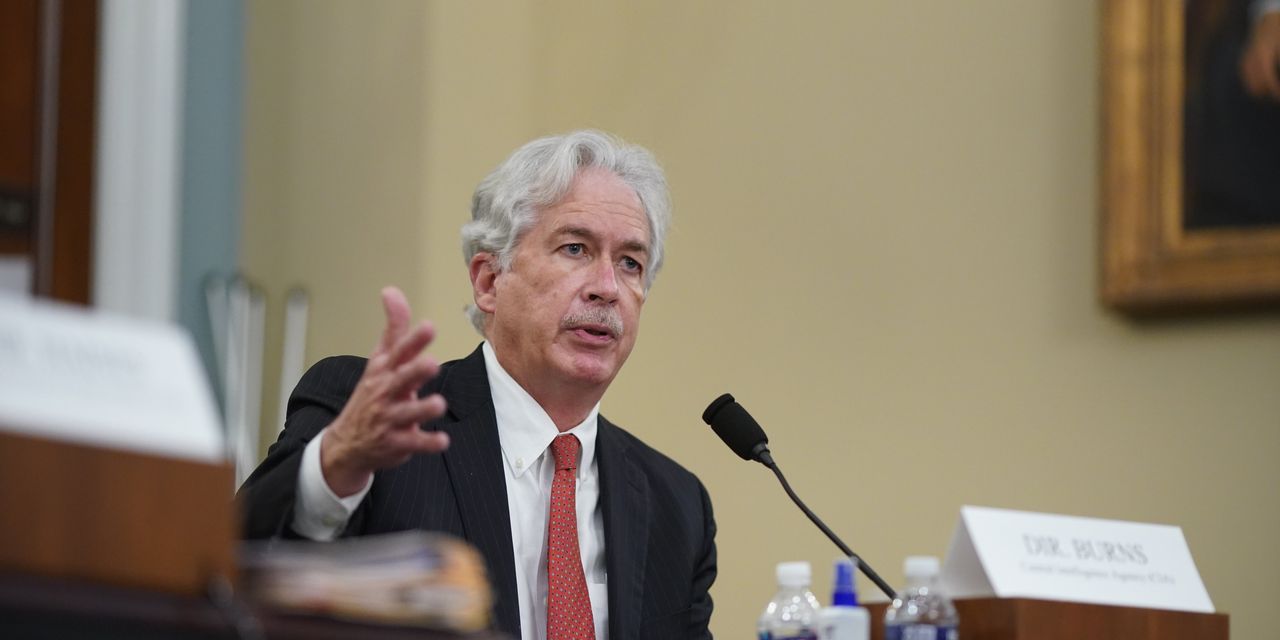As the United States pumps in more money to arm Ukraine with the latest arms package of $270 million with no end to the war in sight, Central Intelligence Agency (CIA) director William Burns has often made statements about Russia that go against popular myths and beliefs.
Russia ‘Pounds’ M777 Howitzers, HIMARS MLRS; Destroys 2 More Self-Propelled Artillery Guns – Moscow
It includes denying President Vladimir Putin is sick; disproving that cases of nausea, headache, dizziness, and other sickness afflicting US diplomats and officials abroad are owing to sonic and microwave attacks (dubbed the Havana Syndrome); pointing to the lack of evidence of Russia possibly using tactical nuclear weapons, and lastly, predicting that expanding the North Atlantic Treaty Organization (NATO) eastward would provoke Russia.

The Russian military intervention continues with Ukraine losing the south, the eastern breakaway region of Donbas, and much of its artillery and ammunition.
Russian Foreign Minister Sergey Lavrov recently announced that its “geographic aims” might include more areas – apparently in retaliation to the US continuing to fuel the war.
The US has supplied Ukraine with Javelin anti-tank guided missiles, M-777 lightweight towed Howitzer, Switchblade loitering munitions, and the High Mobility Artillery Rocket Systems (HIMARS).
A slight misstep triggered the latest round of speculation about Putting being ill after getting off his plane during his visit to Tehran. At the same time, he also coughed during another public appearance.
Before that was Ukrainian intelligence chief Major General Kyrylo Budanov’s claim about Putting having “less than two years to live.”
Rumors, Conspiracy Theories – Burns’s Demystifying
It was preceded by claims of Putin suffering from Parkinson’s earlier in June based on footage of him gripping a table during a meeting with Sergei Kulikov, CEO of the RusNano Corporation.
Other videos of Putin shaking and struggling to stand, having a puffed face and his legs appearing thinned, had triggered rampant rumors of thyroid cancer. Burns, on June 20, put a rest to the speculations saying that Putin is “entirely too healthy” at the Aspen Institute annual security conference.
In January, the CIA released an interim report about the mysterious “Havana syndrome” cases whose inconclusive findings implied that the agency did not blame Russia, China, Iran, or any other foreign power.
Burns’ subsequent statement appeared unconvinced that US adversaries were targeting American spies, diplomats and officials posted abroad.
“While we have reached some significant interim findings, we are not done. We will continue the mission to investigate these incidents and provide access to world-class care for those who need it,” Burns said.
Neither the US government nor the CIA officially blamed Russia, China, or Iran when claims and theories of the Havana Syndrome began doing the rounds in late 2019.
He similarly framed his comments on April 15 about Russia possibly using tactical nuclear weapons in Ukraine to reverse battlefield losses in non-accusatory terms, not even ascribing intentions to such actions to Russia.
“Given the potential desperation of President Putin and the Russian leadership, given the setbacks they’ve faced so far, militarily, none of us can take lightly the threat posed by a potential resort to tactical nuclear weapons or low-yield nuclear weapons,” Burns said.
Again, on May 7, during a conference hosted by the Financial Times, he said the “intelligence agency (does) not see practical evidence of Russian planning for the deployment or even potential use of tactical nuclear weapons.”
It was after Putin ordered his strategic nuclear forces to be put on high alert in what was mere signaling to deter Western countries from militarily intervening in the conflict. However, Burns added that they “can’t take lightly those possibilities…given the kind of sabre rattling from the Russian leadership.” That Burns indirectly pointed to the intelligence not matching the Russian rhetoric was telling.
His 2008 diplomatic cable as the US Ambassador to Russia, leaked by Wikileaks, directly echoed Russia’s security concerns.
“Ukraine and Georgia’s NATO aspirations not only touch a raw nerve in Russia, but they also engender serious concerns about the consequences of stability in the region,” his cable read.
But his July 2021 interview with NPR about his efforts to run the agency more objectively without succumbing to political exigencies explains his moderating approach to Russia.
“My job at CIA is to support and inform policymakers, so they make the best possible choices; it’s not to become policymakers. Our obligation is to deliver (intelligence) in an unvarnished way without any political or policy agenda,” he said.
He even candidly admitted he did fight the temptation sometimes, having been in public service, and has asked his colleagues to “kick” him “under the table” if he started to “stray back into policy issues.”
Is Burns Russia Friendly Or A Russia Hawk?
This certainly doesn’t mean that Burns isn’t a Russia hawk or does not promote continuing the Great Power contest and strategically challenging Beijing or Moscow. But his approach seems grounded in practicality and mindful of the devastating consequences of rising tensions with peer competitors.
Before the Ukraine war, even the late George Kennan and Henry Kissinger – doyens of American policy who shaped US diplomacy with Russia and China at the height of the Cold War – criticized NATO expansion and predicted the backlash from Russia.
They were also conservative Republicans, proving they were far from Communism or Socialism to make a common cause with Russia or China. Burns seems to belong to this realist school of foreign policy.
- The author can be reached at satamp@gmail.com
- Follow EurAsian Times on Google News